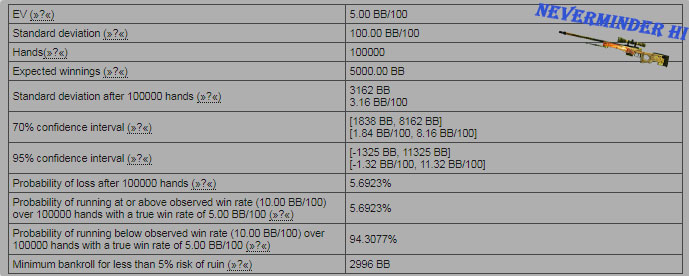The Poker Calculator (five cards)provides all the equations, the calculations, to determine the probabilities of success and failure when playing Poker with a standard five card deck. See the Notes Page for an explanation of how to apply all the probabilities. Probability of getting: expected / whole = 6 / 1326 = 1 / 221, or one in 221 draws. What is the probability of getting a pair (and not a better hand!) in the flop? The world configuration I want, in this case, must be split in three cases: Hole pair: 6. 13 (6 is the expected case, but we must multiply over the possible card values. This free probability calculator can calculate the probability of two events, as well as that of a normal distribution. Learn more about different types of probabilities, or explore hundreds of other calculators covering the topics of math, finance, fitness, and health, among others.
CALCULATE YOUR POKER ODDS WITH THIS FREE ODDS CALCULATOR FOR TEXAS HOLDEM POKER.


Have you ever been playing and given (or even taken) a bad beat and wondered, 'What are the odds?' Well, this state-of-the-art Poker Odds Calculator will help you figure out just that. The Poker Odds Calculator will help you calculate your chances on a given hand, in any situation. Know if you have the best poker card odds, with this good free odds calculator and become a poker star. You will learn holdem poker quickly and use this app to improve your poker skills to become a real pro. This iOS ods app can be used Offline, no internet is required.
Poker Probability Calculator Online
- The probability of one event occurring is quantified as a number between 0 and 1, with 1 representing certainty, and 0 representing that the event cannot happen. Therefore, the probability of an event lies between 0 ≤ P(A) ≤ 1. If we plot the likelihood of rolling a 6 on a dice in the probability line, it would look something like this.
- The probability of flipping heads in a coin toss is therefore 1 to 2, or 50%. For poker players, stochastics is the most interesting part of studying probability. Stochatics deals with frequence-based probabilities. Combinatorics (card combinations), statistics (sample size) and other subdisciplines are all a part of stochastics.